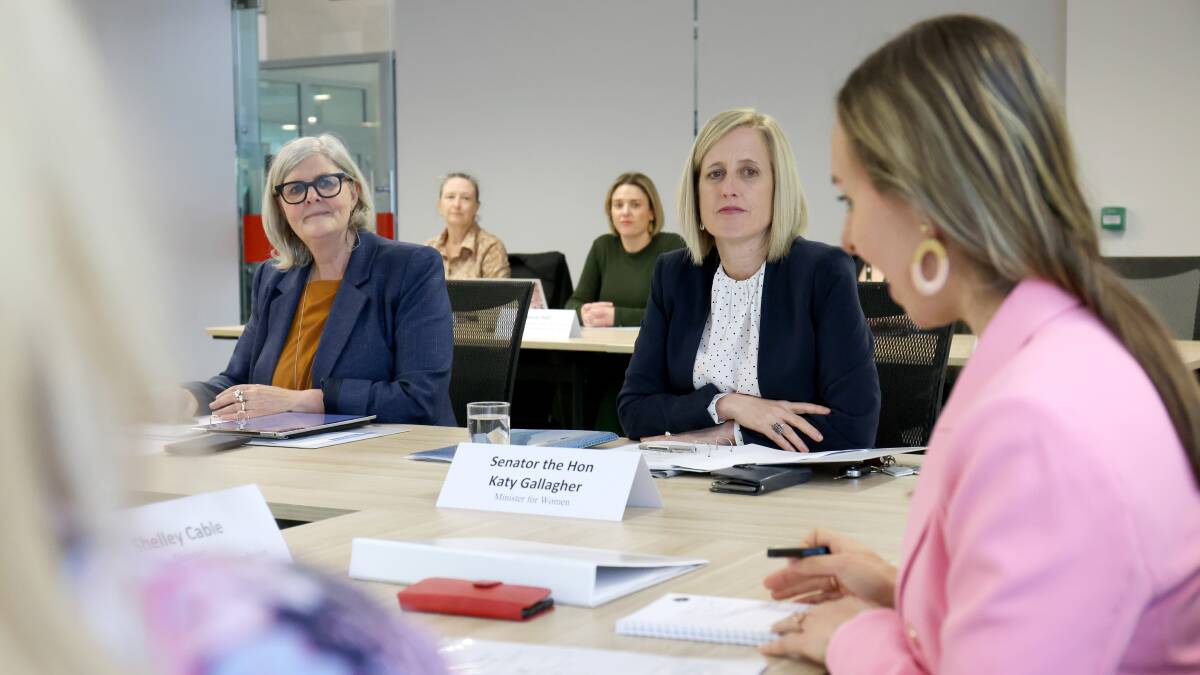The Albanese government is abolishing the controversial $484 million ParentsNext scheme in what Katy Gallagher has declared as the best federal budget for women in more than 40 years.
Subscribe now for unlimited access.
or signup to continue reading
In an interview with The Canberra Times just days out from the May budget, Senator Gallagher, the federal Minister for Women, said she agreed with critics of the tough Coalition-era welfare service for parents and carers with children under six that it was "punitive" and should be replaced.
The mutual obligations requirements will now be dropped for just over a year as the nearly 100,000 people on ParentsNext are transitioned to a new support service. Forming a new service means there is no budget saving from this move.
The ParentsNext axing, which had been recommended by the women's economic equality taskforce, the economic inclusion advisory committee and a parliamentary committee, comes in a budget which has, for the first time, a gender lens applied to every new proposal to find the impact on women.
"This is the strongest budget for women in the past 40 years," the Minister for Women and Finance Minister said.
"I think you'd be hard-pressed to find a budget that invests more or leans more into kind of women's equality or pursuing women's equality. I think you'd be hard-pressed to find another budget that's done anywhere near what we're trying to do in this budget when you match it with what we did in October.
"Women are absolutely at the centre of our decision making."

About 95 per cent of ParentsNext participants are women, while 75 per cent are single parents. It is the only program with children under six with mutual obligation requirements and it has been heavily criticised for being harsh. Welfare payments could be suspended for non-compliance with requirements for meetings, study or parenting-related activities.
The minister said mutual obligation is being waived between now and July 2024 so people don't lose payments while an alternative program is sorted out.
While some participants have been supported back into work or education, she is highly critical of the way ParentsNext affected people.
"The idea that you would put this subset of parents on payments into a pretty punitive program," Senator Gallagher said.
"We can't get away from the fact that a fifth of people on that program lost income and some of them lost it repeatedly."
"And when you've got a baby of nine months, I think you make a decision about whether that's fair or not. Whether taking money away as opposed to investing in supports for that family.
"It's not a large group of people. I think we could do better."

The abolition of ParentsNext was one of 37 recommendations modelled at more than $34 billion over four years from the interim economic inclusion advisory committee and one of six budget priorities from the women's economic equality taskforce.
READ MORE:
As for whether the Albanese government is about to follow other advice, in particular raising the parenting payment for single women with children over eight and raising the base rate of JobSeeker and other welfare payments, the minister said she has listened to all the voices, including Labor backbenchers.
"It'll be a suite of measures. It won't be just payments. It'll look at other things we can do to support the most disadvantaged communities. But I think you'll see a pretty solid response to both of those reports," Senator Gallagher said.

But the entire federal budget represents a seismic shift in how women are treated. It is now a case of gender responsive budgeting, or laying a gender lens over everything, which will be fully implemented by the mid-year economic and fiscal outlook.
"Large measures will go through a much deeper gender impact analysis. Smaller measures will have to go through gender assessment," she said. "Every new policy proposal through this budget process had to go through some gender assessment before it found its way to expenditure review committee."
"So we've sort of gone from a very small assessment in October to everything being done. And by MYEFO we will have it in the big versus smaller ones and the departments themselves will have to do that. So it is not the Office for Women."
The Minister for Women said the gender lens is a significant structural change to how budgets are put together that "will change decisions".
"I have no doubt about it. It also forces departments to have a think about that as they're generating policy and it sends a message that we are not interested in looking at things unless you've done that work," the ACT senator said.
"So I think it's got a very important internal message, but from a decision-making point of view, our decision making is enhanced."



